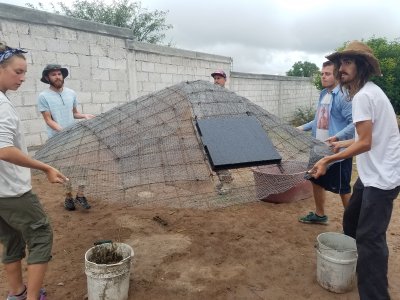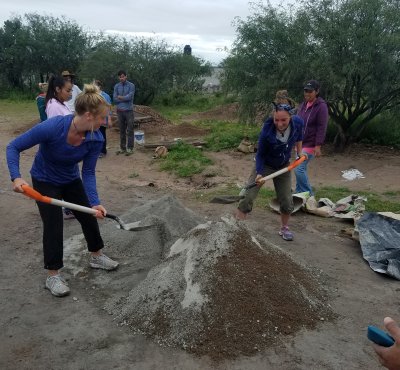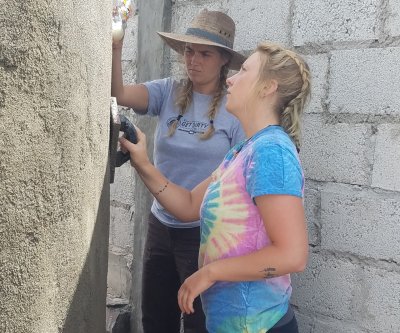Summer Global Learning Program students undertake service-learning project in rural Mexico
This past summer, WWU Professor of Environmental Studies Gigi Berardi taught a Global Learning Program course, "ENVS 437I, Geographies of Hope: Mexico’s Food, Cultures, Histories, and Activism," that brought WWU students to the rural village of Pozo Ademado to take on a large, vital service learning program for the village: to construct a cistern and rainwater catchment basin. Berardi described their work below.
"Approximately half the course was village service learning in cooperation with Caminos de Agua – an amazing non-profit there that also works with Engineers Without Borders.
The program took part in the state of Guanajuato in three locations – Guanajuato city, San Miguel de Allende, and in the village of Pozo Ademado in the region of San Diego de la Unión. We stayed at the Pozo Ademado Community Center (SECOPA).
Caminos de Agua helped us to understand the impacts of neoliberal trade policies on the agricultural resources of rural Mexico. With NAFTA, broccoli exports have increased, and over 80% of Mexico’s broccoli exports come from the exact area in which we were working. As a result, groundwater has been depleted. The little groundwater that remains contains highly toxic amounts of arsenic and fluoride (minerals that are naturally in the bedrock, but due to the low levels of groundwater are in massive concentrations). Almost all the villagers are affected, and the children’s’ teeth are mottled (a sign of Fluoride poisoning).
Besides a major overhaul of the system (a little beyond our scope), we worked on the best solution for the toxic water – avoid it all together and harvest rainwater. We learned about low-cost water technologies, namely ferro-cement rainwater harvesting cisterns and ceramic water filtration. In short, we helped to build the village cistern.
Being in the village was a huge learning experience, and it took us awhile to understand the expectations for community work with Pozo Ademado. It was difficult to insert ourselves in the village, although the community was exceptionally gracious and patient with us.
Together, we crimped wire mesh, sifted sands, mixed them with water and cement, and produced a concrete to apply to the mesh – and soon, we had a cistern. We also spent a lot of time reflecting on the context and culture of work in a rural community. Within a week, other communities in Mexico would be hit hard by hurricanes and earthquakes. We were indeed fortunate to complete our work before then."


